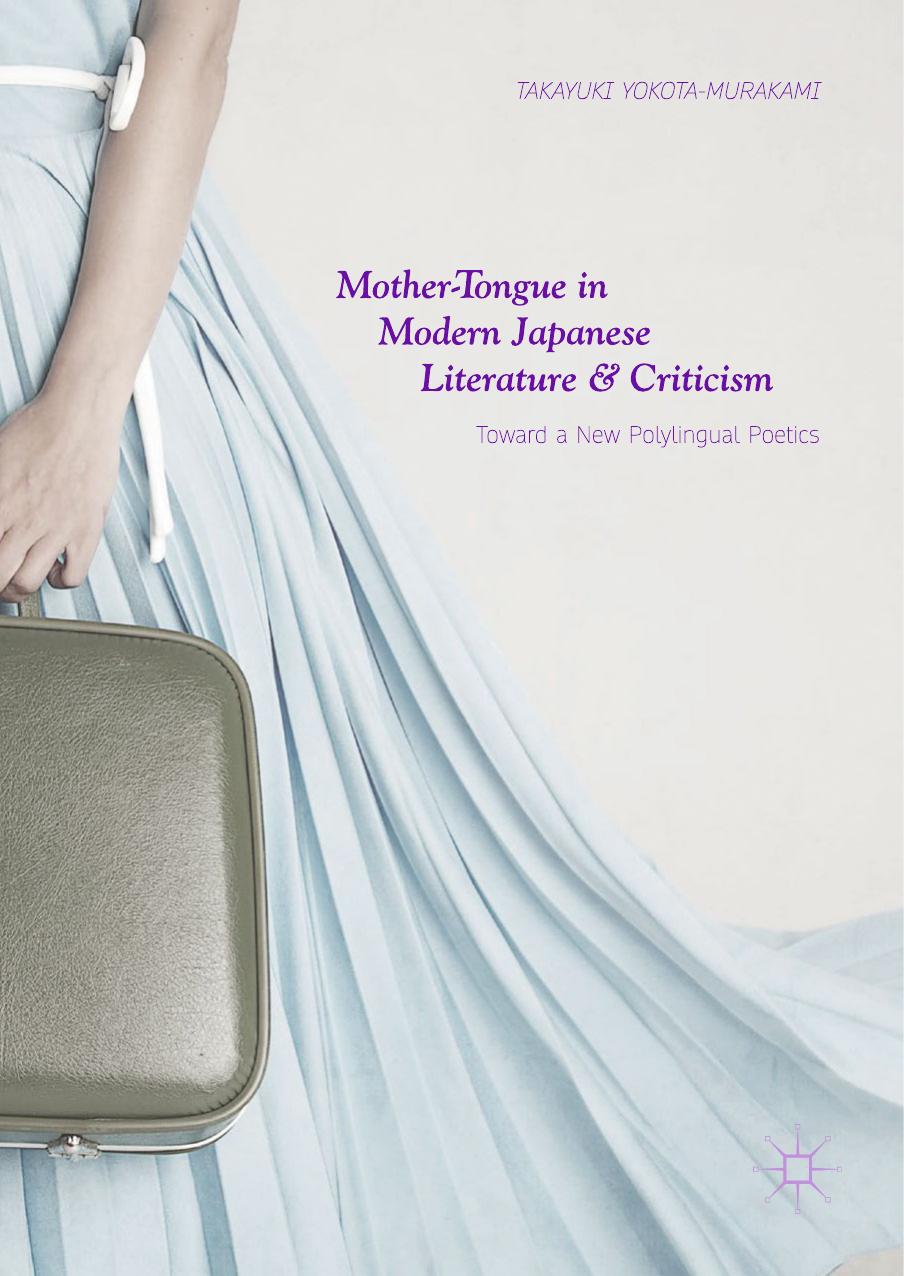Mother-Tongue in Modern Japanese Literature and Criticism by Takayuki Yokota-Murakami

Author:Takayuki Yokota-Murakami
Language: eng
Format: epub, pdf
ISBN: 9789811085123
Publisher: Springer Singapore
5 “Explicit” and “Implicit” Bilingualism
It may be appropriate to introduce here the distinction between what I would like to call explicit and implicit bilingualism. Explicit bilingualism appears in a bilingual text in which elements of a foreign language are explicitly presented. As I pointed out at the end of the previous section, they may not necessarily foreignize the text. But the formal feature of a text of explicit bilingualism is, I hold, fairly evident. Then, what do I mean by “implicit bilingualism”?
Let me explain by giving an example. Kim Sokpom analyzes the unconscious interference of the Korean paradigm in the works in Japanese of Kim Saryang. For instance, Kim Sokpom points to the unproportionately frequent use of the term kô (river 江) by Kim Saryang. Kim Sokpom ascribes this to the fact that in Korean the word gang (江) not only denotes a fleuve (large river as in Huang He [the Yellow River 黄河]), but is also used as a generic term for a river (including river, stream, rivulet, creek, and so on) (190). This, according to Kim, explains the profuse appearance of kô (江) in Kim Saryang’s works in spite of the fact that the Japanese word kô does not have this generalizing signification.
Kim Sokpom further mentions the “incorrect” use of the word hôdô 法堂, which Kim Saryang employs in the sense of the main pavilion of a temple with a statue of Buddha. In Japanese such a pavilion should be called hondô 本堂, but the word hondô 本堂 is absent in the Korean language and is substituted by the word 法堂12 (191). In short, Kim Saryang makes use of a “wrong” word, misled by the shared term hôdô 法堂 in the common Chinese characters but in different senses between Korean and Japanese. Likewise, Kim Sokpom refers to the words such as chôtei (jangje 長堤; a long bank of a river) and nôkei (nonghyeong 農形; harvest yield), used by Kim Saryang. Those are Korean words that have a deceptive resemblance to ordinary Japanese terms, but, in truth, are not in the lexicon of Japanese (191). Nonetheless, when Japanese readers encounter a word such as chôtei 長堤 or nôkei 農形, they may be slightly confused, not knowing what exactly they mean, but relying on the Chinese characters whose meanings are known to Japanese, they can, to a large extent, conjecture (or so they think) the denotations of the unfamiliar terms like chôtei 長堤 or nôkei 農形, possibly taking them to be Japanese terms. In fact, this is what Japanese readers constantly do when they encounter in a text unfamiliar (Japanese) words, consisting of Chinese characters.
I call these instances “implicit bilingualism,” where the alien does exist in the text, being subtly concealed and the text may pass for a monolingual one. Such a “bilingual” phenomenon (or pidginization, if you will) is recognizable only to a shrewd reader like Kim Sokpom with a good knowledge of Korean and critical consciousness. It is almost invisible to a mundane Japanese reader. But, precisely because
Download
Mother-Tongue in Modern Japanese Literature and Criticism by Takayuki Yokota-Murakami.pdf
This site does not store any files on its server. We only index and link to content provided by other sites. Please contact the content providers to delete copyright contents if any and email us, we'll remove relevant links or contents immediately.
4 3 2 1: A Novel by Paul Auster(12363)
The handmaid's tale by Margaret Atwood(7750)
Giovanni's Room by James Baldwin(7316)
Asking the Right Questions: A Guide to Critical Thinking by M. Neil Browne & Stuart M. Keeley(5751)
Big Magic: Creative Living Beyond Fear by Elizabeth Gilbert(5745)
Ego Is the Enemy by Ryan Holiday(5409)
The Body: A Guide for Occupants by Bill Bryson(5073)
On Writing A Memoir of the Craft by Stephen King(4925)
Ken Follett - World without end by Ken Follett(4718)
Adulting by Kelly Williams Brown(4563)
Bluets by Maggie Nelson(4542)
Eat That Frog! by Brian Tracy(4514)
Guilty Pleasures by Laurell K Hamilton(4437)
The Poetry of Pablo Neruda by Pablo Neruda(4089)
Alive: The Story of the Andes Survivors by Piers Paul Read(4017)
White Noise - A Novel by Don DeLillo(3999)
Fingerprints of the Gods by Graham Hancock(3984)
The Book of Joy by Dalai Lama(3968)
The Bookshop by Penelope Fitzgerald(3841)
